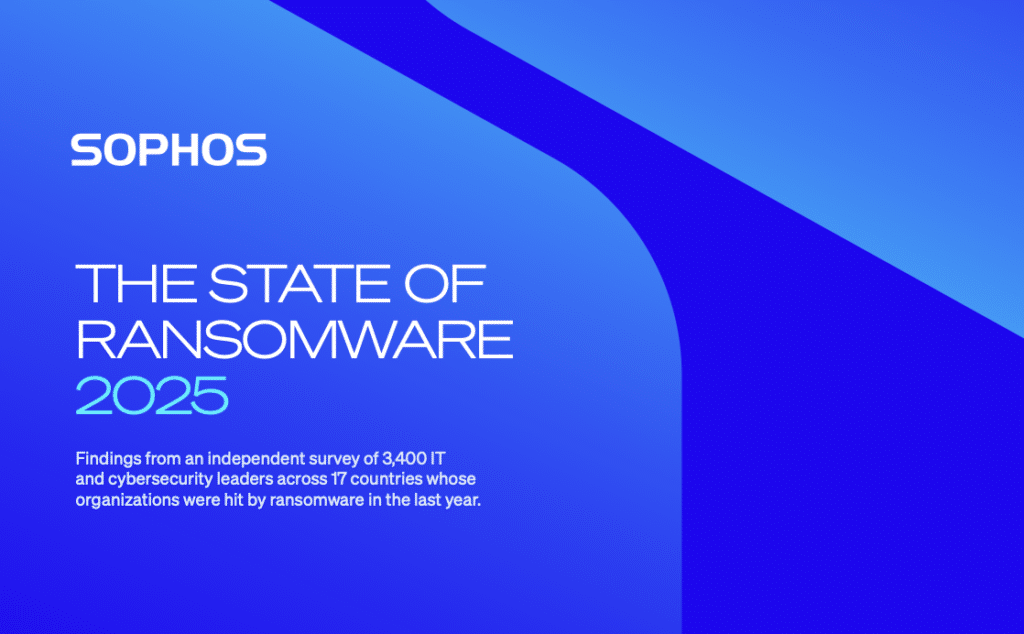National fraud awareness week: How can small businesses prevent fraud?

Fraud threat affects every size of business, however smaller businesses can often be more vulnerable to fraud than those larger organisations. Last year an estimated £18.9 billion was lost as a result of fraud in SME’s alone.
Fraud can occur from within your organisation but can often extend beyond that even though Banks and other fraud prevention organisations have highlighted the need to be wary of disclosing information. Yet still worryingly, cyber crime is up by 63% in 2017. This is a decrease of 15% from the previous year, but this is still a concerning figure.
To ensure your business is protected you should identify:
- Common types of fraud that can expose your small business
- Steps you should take to prevent fraud and implement regulations to help you achieve this.
- Identify employees that could potentially commit fraud. This is an awful way to have to think but the reality is, to always keep an open mind and minimise the potential risk of any kind of fraud anywhere.
Whilst the types of fraud are no different to larger organisations, smaller businesses are more susceptible because they often do not have the measures in place to identify or ringfence potential issues.
Until your business understands the type of frauds that can occur, it’s essential to understand what fraud can be committed and this can be split into 6 categories:
Assets fraud
- Expenses theft: when an employee uses their expenses for their own benefit
- Compensation fraud: When an injury is exaggerated to gain compensation for something that wasn’t the company’s fault.
- Cheque forging/tampering: An employee forging signatures or altering payee info, amount info.
- Cash theft: Stealing physical cash from the business
- Product theft: When an employee uses company money to gain a product for their own use
Accounting
- Embezzlement: When someone has control of the company funds and uses them inappropriately for their own benefit
- Personal use purchases: When company funds are used to buy something for personal use, but it is recorded as legitimate company purposes.
- Accounts payable: This can be the most detrimental fraud to the business, as this can involve invoice or expenses tampering
- Fake Employees: When an employee does not exist but appears on the payroll
- Ghost suppliers: Suppliers that don’t exist that are billing for services or products that don’t exist.
Data:
- Trade secrets: when these are sold to competitors to the detriment to your business.
- Theft of sensitive data: when data such as credit card numbers, client info is sold to 3rd
Bribery & or corruption:
- Bribes: This occurs when another business is paid to aid their own company’s or personal benefit.
- Product fakes: When the original product is substituted for inferior products than what was initially agreed. This is usually to help reduce cost.
Billing:
- Billing schemes: False payments are sent to individuals within the business from the company and can involve creating a fake customer or editing an existing one.
Overcharging:
- Overcharging people than what was initially agreed.
Preventing fraud in small business:
There are several steps to prevent fraud in your small business and protect your assets whether they are physical or monetary assets. So, we have come up with a series of tips to help you:
Know your clients: Vet potential clients, there is nothing wring in ascertaining who your potential clients are.
Threats identified: dubious clients can use several methods to pay for things which could leave you out of pocket. This can include using cloned cards to make payments.
Cheque fraud: This is a great way to commit fraud. The fraudster can leave with the product but leave you with a cheque that can be bounced by the bank
Therefore, only accept cheques from trusted customers and suppliers and always use a pen and cross through any empty spaces. Ask for alternative payment if the cheque appears to look wrong in any way or if the customer writes a greater amount and asks for change.
Cash: fraudulent cash is an old school tactic, and this is still occurring even in the light of the new £5 £10 notes. Therefore, always check the following:
- Any raised print: you should feel this on words like “Bank of England” if it feels flat then it could be fake.
- The print on the new polymer notes is sharp: if there is any blurriness then then its fake. Big Ben is finely detailed and when the note is tilted you should see a coloured rainbow effect.
Look out for suspicious orders: if a client wants to pay outside of your preferred payment method this will lower your protection to fraud, so you should always stick to your payment methods.
Secure your assets
- List your assets (Physical and digital) and initiate an action plan on how you can keep these safe. E.g. loss of data is extremely detrimental to your business.
- Protect your branding and identity: this is the most valuable thing to you so read up on your intellectual property rights. Plus ensure that your details at Companies house is protected as this is often an ideal place for fraudsters to go to obtain your details.
- All businesses must comply with the Payment Card Industry and Data Security Standard (PCI DSS) an this applies to all businesses that handle card and online payments. There are huge consequences if you do not comply
- Know your suppliers: invoice fraud is the most common type of B2B fraud. Research who you are dealing with and keep regular checks on them including financial health checks.
- Know your employees: 80% of data breaches occur as a result of employees according to the Information Commissioners Office. Monitor their behaviour and be alerted to any changes in their behaviour as even the most loyal person can be swayed into committing fraud.
- Implement an anti-fraud/Anti bribery policy in your company handbook so that everyone is clear that this behaviour is not accepted and will result in disciplinary procedures.
- Educate your employees on fraud and bribery: including preventing the use of common passwords and implement a policy to ensure that the company data and products are secure.
- Keep clear records: As a small business it is very easy to be stretched in all directions but keeping consistent and clear records will minimise your risk to fraud.
- One computer for accounting: do not allow people to use social media on this computer as this can create vulnerabilities that can allow hackers to break into your accounting systems.
- Insurance cover: essential for any business so that you are covered if you do fall victim to fraud.
- Secure your IT: implement a firewall as well as anti-virus, spyware, and malware detection.
Fraud threat affects every size of business, however smaller businesses can often be more vulnerable to fraud than those larger organisations. Last year an estimated £18.9 billion was lost as a result of fraud in SME’s alone.

If you need any assistance with how Mode can help you secure your hardware and software against fraud then visit our Secure Printing Section or contact us on 0345 223 2203 or alternatively email us on [email protected]
Subsribe for updates and our latest research
You may be interested in
The 2025 State of Ransomware: Key Insights on Attacks, Costs, and Recovery
Ransomware continues to evolve — and so must our defenses. The State of Ransomware 2025 report from Sophos presents one of the most comprehensive views yet into how organisations around the world are being impacted by ransomware attacks. Based on an independent survey of 3,400 IT and cybersecurity leaders across 17 countries, the report explores how attacks are evolving, the operational weaknesses adversaries exploit, and the human and financial tolls that follow. Whether you’re building a cybersecurity strategy or assessing risk, this year’s findings offer crucial, real-world insights to guide your response. Key Findings from…
Outgrowing your MSP; businesses need a provider that scales with their growth
To stay competitive, business leaders must align with MSPs that deliver strategic value, drive innovation, and support to scale. Now firmly into 2025, it’s becoming clear what the year has in store for the IT landscape. For SMBs, the message is clear: business growth must be matched with smarter, more scalable managed services. The demand for cyber-resilient, cloud-first and AI-integrated solutions is no longer a forecast – it’s a reality already shaping business priorities. According to leading global technology market analyst firm Canalys’ MSP Trends 2025 report, the MSP model is transforming under growing pressure…
End of windows 10 support signal urgent action needed from UK organisations as cyberattacks continue to rise
Recent breaches at major UK retailers, combined with the approaching end of life of Windows 10, highlights a critical moment for IT resilience planning The recent wave of cyberattacks targeting major UK retailers has highlighted the growing security risks associated with organisations running outdated systems and applications and maintaining weak identity verification protocols. These incidents—particularly those involving Marks & Spencer and the Co-Op—have starkly exposed how vulnerable legacy infrastructure and insufficient access controls can be. In both cases, attackers successfully posed as legitimate employees and manipulated IT help desks into resetting internal passwords, ultimately gaining…
UK SMEs must fortify their cybersecurity against geopolitical risks, says Espria
A recent Sky News investigation highlighted an uptick in cyberattacks tied to the Iran conflict that are targeting businesses across multiple sectors. Speaking at the NATO Summit, Prime Minister Sir Keir Starmer urged UK businesses, regardless of size or sector, to prioritise cybersecurity and ‘take immediate steps to review and strengthen their defences.’ While the warning is timely in tone, businesses are already becoming targets of politically motivated cyberattacks, emphasising the need for heightened vigilance. “As tensions spread globally, threat actors will continue to exploit digital vulnerabilities, and neutral businesses may be caught in the…
End of windows 10 support signal urgent action needed from UK organisations as cyberattacks continue to rise
End of windows 10 support signal urgent action needed from UK organisations as cyberattacks continue to rise
Why Businesses Should Invest in ESG: Lessons learned by Espria
In today’s competitive landscape, Environmental, Social and Governance (ESG) performance is no longer just a “nice to have”—it is a critical business imperative. Companies that prioritise ESG are better positioned for long-term success, risk mitigation, and reputation enhancement. Today’s world demands more from companies than just financial performance. Customers want transparency. Employees want purpose. Investors want resilience. ESG helps businesses manage risk, seize new opportunities and build trust with the people who matter most. It is how you can stay competitive, stay responsible and stay relevant in a fast-changing world. A powerful case study of…





